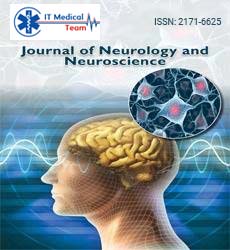Commentary - (2023) Volume 14, Issue 4
Precision medicine in neurology: From genomics to personalized therapies
Francesco Pellicciari*
Department of Psychology, Catholic University of Milan, 20123 Milan, Italy
*Correspondence:
Francesco Pellicciari, Department of Psychology, Catholic University of Milan, 20123 Milan,
Italy,
Email:
Received: 01-Aug-2023, Manuscript No. ipjnn-23-14070;
Editor assigned: 03-Aug-2023, Pre QC No. P-14070;
Reviewed: 17-Aug-2023, QC No. Q-14070;
Revised: 23-Aug-2023, Manuscript No. R-14070;
Published:
31-Aug-2023
Introduction
Neurology stands at the threshold of a revolutionary
transformation with the advent of precision medicine.
The intricate tapestry of neurological disorders, long
characterized by heterogeneity and complexity, is now
being unraveled at the molecular level. This paper embarks
on a journey into the realm of precision medicine in
neurology, where genomics, advanced diagnostics, and
personalized therapies converge. Our mission is to explore
how this transformative approach is redefining the
landscape of neurological care. By delving into the genetic
underpinnings of neurological conditions, we uncover the
potential for tailored interventions that promise not only
to improve treatment outcomes but also to reshape our
understanding of neurological diseases [1,2].
Description
The description section provides a comprehensive
overview of the paper's content. It delves into the
fundamental principles of precision medicine in neurology,
emphasizing the role of genomics in unraveling the genetic
architecture of neurological disorders. It discusses how
advances in high-throughput sequencing technologies
have enabled the identification of disease-associated
genes and variants, providing crucial insights into disease
mechanisms [3]. Furthermore, this paper reviews the
practical applications of precision medicine in neurology.
It explores how genomic information is harnessed
for personalized diagnosis, prognosis, and treatment
selection. It highlights the emergence of targeted therapies,
including gene therapies, precision pharmacology, and
immunotherapies, designed to address the specific genetic
drivers of neurological conditions [4].
The description also addresses the importance of
interdisciplinary collaboration in precision neurology. It
discusses how neurologists, geneticists, bioinformaticians,
and data scientists work in tandem to interpret complex
genomic data, translating it into actionable insights for
clinical practice. Moreover, it underscores the significance
of patient engagement and informed consent in the era
of genomic medicine. Additionally, the paper explores
the challenges and ethical considerations associated
with precision medicine in neurology. It addresses issues
related to data privacy, equity in access to genetic testing,
and the need for robust evidence to support the clinical
implementation of precision therapies [5].
Conclusion
In conclusion, precision medicine in neurology
represents a paradigm shift in our approach to
understanding and treating neurological disorders. As we
decode the genetic basis of these conditions, we unlock
the potential for personalized therapies that target the
root causes of disease. The journey from genomics to
personalized therapies is not only transforming clinical
practice but also offering hope to individuals and families
affected by neurological disorders. It heralds a new era of
neurology where treatments are tailored to the individual,
leading to improved outcomes, reduced side effects, and a
deeper understanding of disease mechanisms.
As precision medicine continues to advance, it is
essential to remain committed to rigorous research, ethical
considerations, and equitable access to these cuttingedge
therapies. In doing so, we can ensure that precision
medicine fulfills its promise of delivering more effective
and individualized care to those in need within the field
of neurology.
Acknowledgement
None.
Conflict of Interest
None.
References
- Gregson A, Thompson K, Tsirka SE, et al. Emerging small-molecule treatments for multiple sclerosis: Focus on B cells. F1000 Research. 2019;8.
Google Scholar, Crossref, Indexed at
- Kalucka J, Bierhansl L, Wielockx B, et al. Interaction of endothelial cells with macrophages—linking molecular and metabolic signaling. Pflug Arch Eur J 2017;469:473-83.
Google Scholar, Crossref, Indexed at
- Marquínez MN, Fernández EG, de la Tassa JM. Periodic fever: From Still's disease to Muckle-Wells syndrome. Reumatol Clin. 2019;15(5):e39-40.
Google Scholar, Crossref, Indexed at
- Pain CE. Juvenile-onset Behçet's syndrome and mimics. Clin Immunol. 2020;214:108381.
Google Scholar, Crossref, Indexed at
- Papadopoulou C, Omoyinmi E, Standing A, et al. Monogenic mimics of Behcet’s disease in the young. Rheumatology. 2019;58(7):1227-38.
Google Scholar, Crossref, Indexed at





